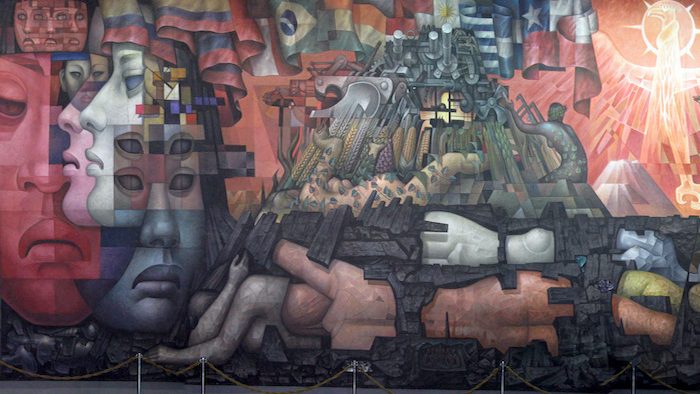
In our century, there are more and more debates about racism and discrimination because of the last historical actions of colonialism existed in many countries. Today there are many theories based on the steps of colonization; one of them is post-colonial. Any literature that expresses opposition to colonialism, even if it was written in the time of the colonial period. The term involves the experience of colonialism: past and present influences on the levels of material and spiritual culture. Postcolonialism often attracts a discussion of the problems of slavery, migration, suppression and resistance, differences, race, gender may be defined as post-colonial. Some believe that literature written during the time of colonization strengthens the ideology of colonization through its own experience and authors of literary works and essays about colonization affect people’s worldview for aggressive; however, the literary text in the Western canon only undermines the colonialist ideology by presenting colonialization.
The termof post-colonialism itselfinvolves the experience of colonialism: past and present influences on the levels of material and spiritual culture. Postcolonialism often attracts a discussion of the problems of slavery, migration, suppression and resistance, differences, race, gender. The postcolonialism theory is a type of cultural criticism. Post-colonial criticism usually involves the analysis of the texts produced in countries and cultures that were under the control of European colonial powers at some point in their history.
The ideological rationale for colonialism proceeded through the need to spread culture — the “burden of the white man.” The ideology of colonialism and specifically, its intensification was discussed in the work of Ngugi Wa Tiongo and its text “The Language of African Literature” and Jamaica Kincaid “How to see England for the first time.” These two works deeply describe the problem of colonialism and the question of social mirrors in general. Is it possible to call the message of these works the goals of suppressing the ideology of colonization? Yes, since recalling the past, it must reflect the history so that the new generation will realize the richness of its pre-colonial culture. As an example, Tiongo, in their small African city, with the arrival of the British, almost everything that they cherished disappeared. Conquerors also create stereotypes about the losers. A stereotype is an idea that every member of a tribe acts in the same way because of its tribal association. Because of this, stereotypes have appeared that all whites are smarter than blacks. In the text mentioned above, the message suppresses the idea of the stereotype of black people and also contains the authors by their example. Each of us is an individual and has the right to express his opinion, but not everyone can express it through essays, stories and so on.
Jamaica Kincaid and Ngugi Wa Thiongo wrote stories about the sufferings of the colonized people. For example, in “On Seeing England for the first time.”, Kincaid talks in detail about the impact of imposing British culture in her home, the island of Antigua, which occurred when British colonists were already well settled on new lands. That “imposing” included, according to her, the study of British history, the location on the world map, its achievements, the wearing of clothes, the consumerism of food made in England, and so on. Kincaid conveys a passive form of aversion to England, which conquered the island on which she lives. Snapshots and comparisons of everyday life in her home and school with England are used to depict the influence that the victorious country had on the people she controlled. Instead of glorifying the research character of European colonists as their sphere of influence expanded, both Kincaid and Tiongo spoke of the devastating events that led to the destruction of culture, literature, and language when the British imposed their imperial government. In turn, the authors point out negative consequences, such as the displacement of identity, the absence of rights and freedoms.
Post-colonial literature is similar to cultural studies, but it assumes a unique perspective on literature that warrants a separate discussion. For example, some post-colonial authors note that since the language of the British colonies is English, literature written in English is often used to marginalize and limit points of view. However, in the post-colonial period, language and the ability to speak, write, and publish became a suitable tool for post-colonial authors. Thus, a letter of colonization, post-colonization, or decolonization undermines the colonial ideology, describing events on its own experience.



